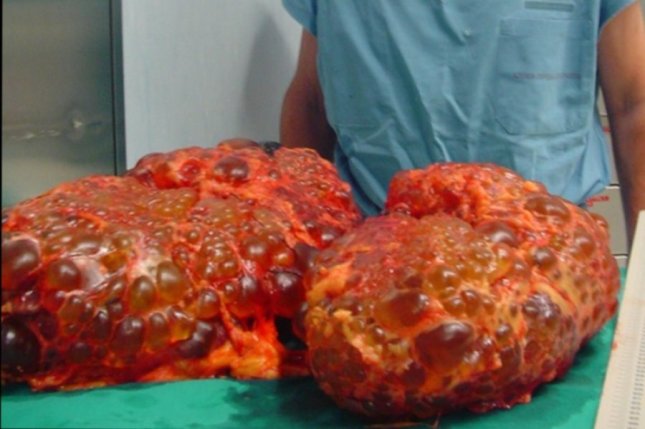
Polycystic Kidneys
One could argue with some validity that the human predicament itself is a fine example of inherited disease. In the same way that we human beings inherit our culture, our language, our religions and technologies alike from our ancestors, so too do we receive from them their bad habits, addictions, pestilences, weaknesses, and diseases. Here “Nature Versus Nurture” is a moot battle, as whether these inheritances be due to training or genetics really makes no difference for the end result now under discussion. As products of our parents and our culture it can even be argued that we are nothing more than the sum of these circumstances.
If you are lucky, let’s say in example, you get your father’s above average intelligence and drive, your mother’s patience and understanding, and your grandmother’s literary gifts. Too often, though, we are not so lucky, and if you get your father’s wits, you also get his bad temper, and his impatience, which somehow outweighs all the genetics your mom provided, and all the teachings society gave you about staying calm. While I for one will never say we mere mortals have absolutely no control over what we are and will become, it has to be admitted by everyone that “pre-existing conditions” in a very real way restrain our possibilities (“milieu” as used by JP Sartre, for instance). So, while you might be lucky enough to strike that gold, and glean from your mother’s DNA her compassionate nature and sense of the mystical, you at the same time could get, perhaps, her bad kidneys, her weak constitution, or the conditions for organ failure.
It gets even more complicated, when considering the genealogy of our beings, for in some instances, concerning what you inherit, you do not even know from whence it came. Perhaps you are a bookworm and a reader, yet the child of a man and woman who last picked up a book in their teens, and only then to swat a fly or provide support for a wobbly table. From where, you wonder, comes this predilection for the written word? One could say mandatory schooling, but then this process has not had the same effect on even your own parents. Only by searching deeper down the lineage might you discover that it was your great-great-great grandfather who was a writer and man of the pen. Culturally, from which primordial creed do we inherit the necktie, our attractions, and our norms? Who is responsible?
Polycystic Kidney Disease is a genetic disorder that results in eventual kidney failure for approximately half of all people diagnosed with it. There is voluminous information available online if anyone is interested in reading about it. A Google search for “PKD” today will show a lot of the links, under numerous different URLs, most monopolized by the Chinese, maybe trying to make some money with surgical tourism, maybe on the cutting edge of therapy (evidence appears inconclusive). There are also plenty of the useful sources such as WebMD and so on. But a good amount of this information is also by thoughtful people who themselves have the disease. They seek to educate others, form alliances, and inform others of this disease’s processes from a firsthand account, whatever be the merits of that, other than camaraderie.
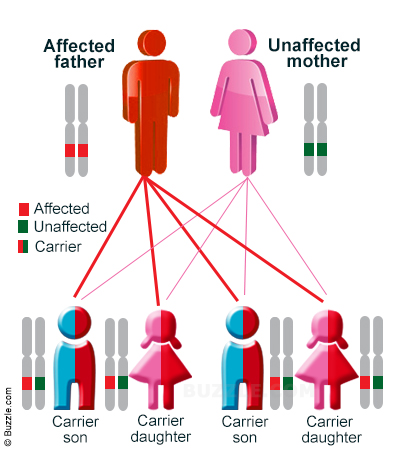
Any disease could serve to illustrate what I mean to call attention to, which is tendencies we acquire through no fault of our own. Having this PKD ailment myself, and currently possessed of a merging of a vein and artery, known as a fistula, because, I was told, this is the best way to toughen the vessels for the dialysis I have since been receiving for the past few years, I use this particular renal failure as the example. Be advised I intend this to be neither a fully informative nor a sympathetic account of either the disease or my personal condition. Perhaps from being in the half of those diagnosed who do lose their kidney function, I find the entire predicament completely dreadful (no good options), the science/medicine speculative and inconclusive, and at times, paradoxical (calcium blockers and calcium supplements at the same time, e.g.), and the smell of big business through it all (over 100k a year per person, meals not included, mostly paid by Medicare) just makes it stink for me so much the worse.
Parentheticals, as well as belly-aching [sic] aside, the point here is to call attention to the fact that staying active, eating right, acting correctly, and so on, often has little to no bearing on these inherited disease situations at all. For people with such a genetic disposition, it is precisely circumstances beyond their control that has “caused” their plight. Let it not be forgotten, though, that when it comes to natural born gifts, abilities, and skills, or even what we come to understand as the the contemporary morality, these things, too, are from circumstances beyond our control. Simply put, if we are not responsible for our our depravity and degradation then neither are we responsible for our excellence and genius. Any attempt to “blame” the disease on mom or dad – or booze or cigarettes – not only belies a blatant ignorance of how these particular things work, but would also be ethically the same as blaming the flu on the person who gets it. Did Michelangelo paint the Sistine Chapel ceiling? Or was he just a mechanism, a tool no more responsible for the art than the paints?
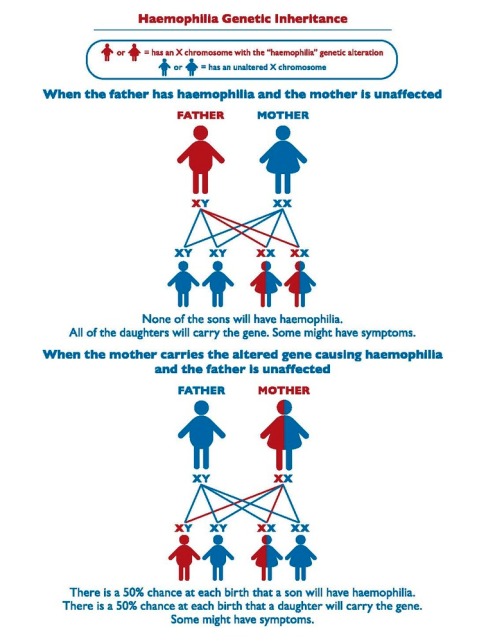
As we inherit our greatnesses, so too do we inherit our dooms. Diseases social, communicable, epidemic, as well as inherited, are as much a part of the world today as they ever have been. Together they fall under the category of Things Beyond Our Control. We can, and often do, try to change these things beyond our control, in the case of disease, we try to control these messengers of death. We like to think our immunizations halted the progress of certain diseases and pestilences of history, but excepting the success of general antibiotics every other “cure” for epidemics like black death, typhoid, polio, measles, and so on came when their death tolls and rate of afflictions were already on the decline.
Communicable diseases are on topic here only when considered from a point of view of inherited susceptibility or resistance. Chicken pox and herpes in general, the common cold, the flu, like PKD and most cancers, and many, many more human afflictions remain uncured. While it would be silly to deny medicine the improvements it has made I think it fair to say that those microbial things which have made, and continue to make us most ill, and which do their best to kill the most of us, always have and always will do their dirty work, and then leave as fast as they came, whether due to a learned human resistance or the viral mission’s being accomplished.
Centuries ago, for a person with – staying with the example – diseased kidneys, at some point the urine stopped and he or she died. Decades ago, if you were one of the few fortunate and your problem was found early, and if you were lucky again, you got one of the few dialysis chairs in the country, and maybe lived a few more years. Now, today, you can dialyse several ways, at home or even on the go, and for about a quarter million dollars or so you can have a “new” cadaver kidney or, if you have anyone that loves you, a donated kidney, put into your body, which could get you 20 years of “bonus” life, or even more.
So, it seems science is doing its job? Let’s just stay with the example and answer “Maybe,” for now. For consider a moment the situation. Centuries ago the first person in the family with the disease, oh maybe your great to the 100th power grandfather Oomga Cain, foraged, fished, and hunted, or scribed or made arrow points, or did whatever he did until he couldn’t do it anymore. He died from a disease he never knew he had, and the luxury, which should be obvious, is that he had literally no idea of his fate, or why he was dying. He got to enjoy, or at least consume completely with no extra anguish or anxiety, his remaining days. Now maybe your great-great grandfather got to the machine, decades ago, and after he started he died after two years. So while he had to remain on dialysis to his last days, knowing how he was to die if not when, he nevertheless “lived” longer than he should have, literally feeding the machine. Now, today, to achieve these miracles, such as transplanted organs, and enough life on dialysis to father a new child and see it graduate high school, the requirement is handfulls of pills every day for the rest of your life, as well dependencies and burdens on all around you as long as you stay alive. And, in the end, the practices that save you can kill you at any time due to infections and all the mechanical manipulation and stress. Progress, as science itself can tell you, is slow and often unsteady. The same practices considered today “cutting edge” medicine will, decades from now, likely be seen as just this side of barbaric, and in the case of certain diseases like PKD, perhaps based on faulty assumptions. But again, staying with our theme, some things cannot be changed, but they can be delayed, or avoided.
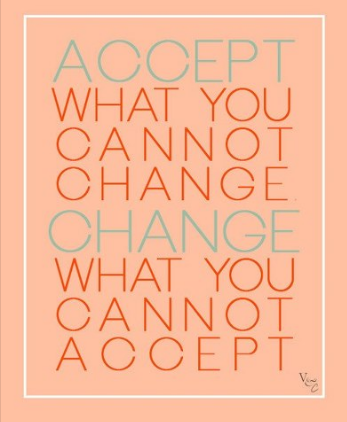
Why, then, do we elect to fight these inherited diseases, knowing that all we are doing is delaying the inevitable? And how many things do we do, or not do in life for fear of consequences, or a dreaded outcome? Some people, such as myself, skeptical of the best known science concerning the very diseases they have, will nevertheless decide to take their treatments (with modifications, of course…), to try and prolong their existence, and the reason is because some things fall under the category of Things We Can Change. While we cannot, as humans, always alter or affect our lives as we wish, due to those circumstances beyond our control, we can adjust and alter our thinking, and sometimes our very selves, to make the best of even the most undesirable situations.
At first this might seem like a head-in-the-sand approach to frightful events, an “ignorance is bliss” outlook on life. On quite the contrary, the way I see it we have, and have always had, certain of us humans unafraid enough to be willing to stand up to and fight the things of affliction, the things which vex us, and torment us. We have demonstrated time and again that there are those among us who cannot be beaten so easily, for whom it takes more than even inescapable genetic defilement to deter us from the business of living. Such people know the end it will bring them, but an end to us all, in some way, eventually will come.
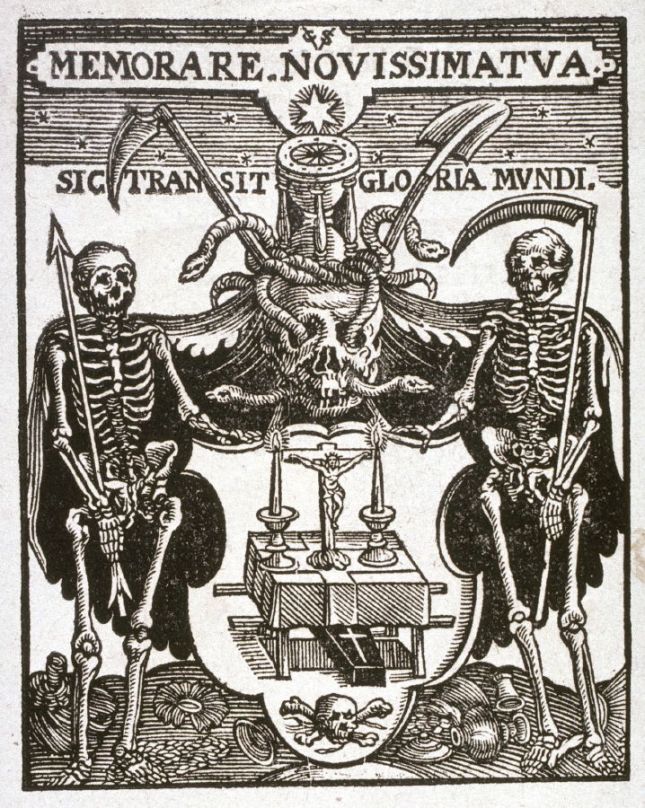
Yes, I think when it comes to some diseases all the options stink and that really, all things and relations TRULY considered, just going as long as you can without any treatment and then dropping dead is often the better option. But I believe still, despite the hauntings of the past contained in our genetic makeups and thoughts, that in our minds and bodies are also seeds of skills, genius, and greatness.
Moreover, we are born really free, and in this case, regarding how our inborn inheritances might contribute to our destiny, at least for me, this carries a lot of significance. Any true lover of freedom and human liberty is particularly averse to any thing, situation, or circumstance which attempts to limit or curtail his freedom in any way. Inherited diseases, of all kinds, attempt to place limits on us, by telling us we can no longer do X, or must now do Y. This very diction, for me, is anathema, as I know it was, and is, for every person who knew the way out, was aware of the eventual end and instead decided to live and fight on. Diseases, seen in this way, may very well be teaching tools, as obstacles to overcome, maybe so we can better get to where we need to be, or should be going.



